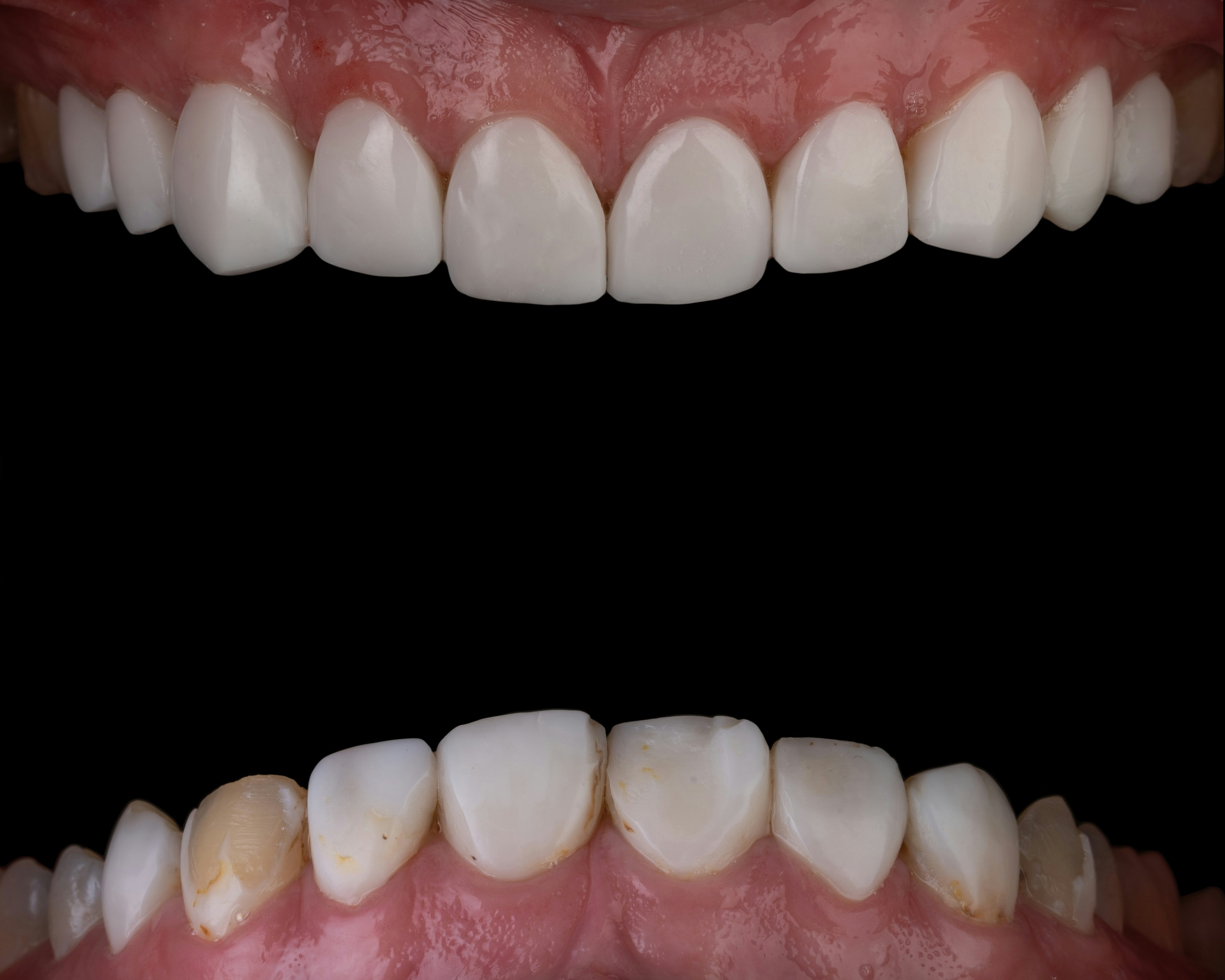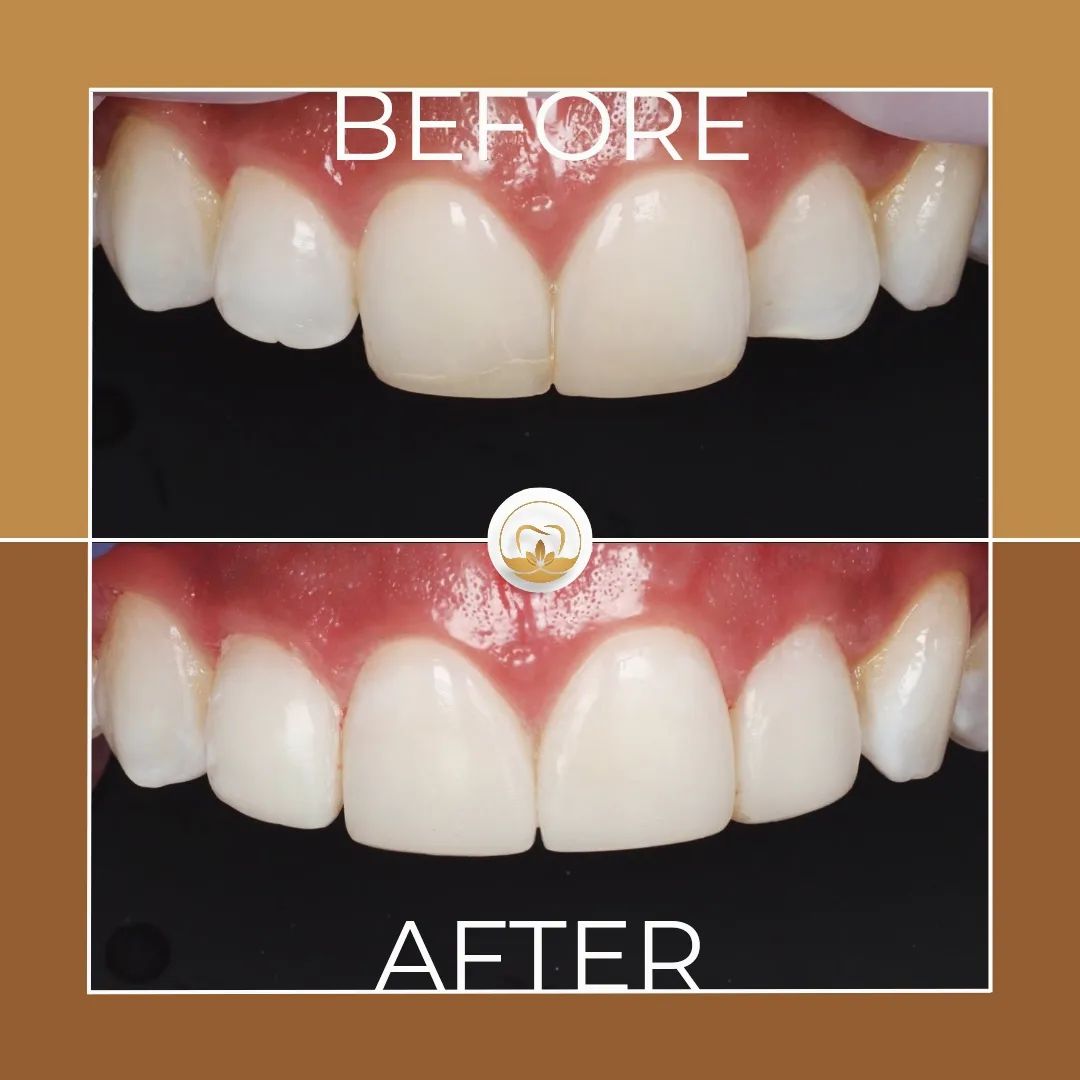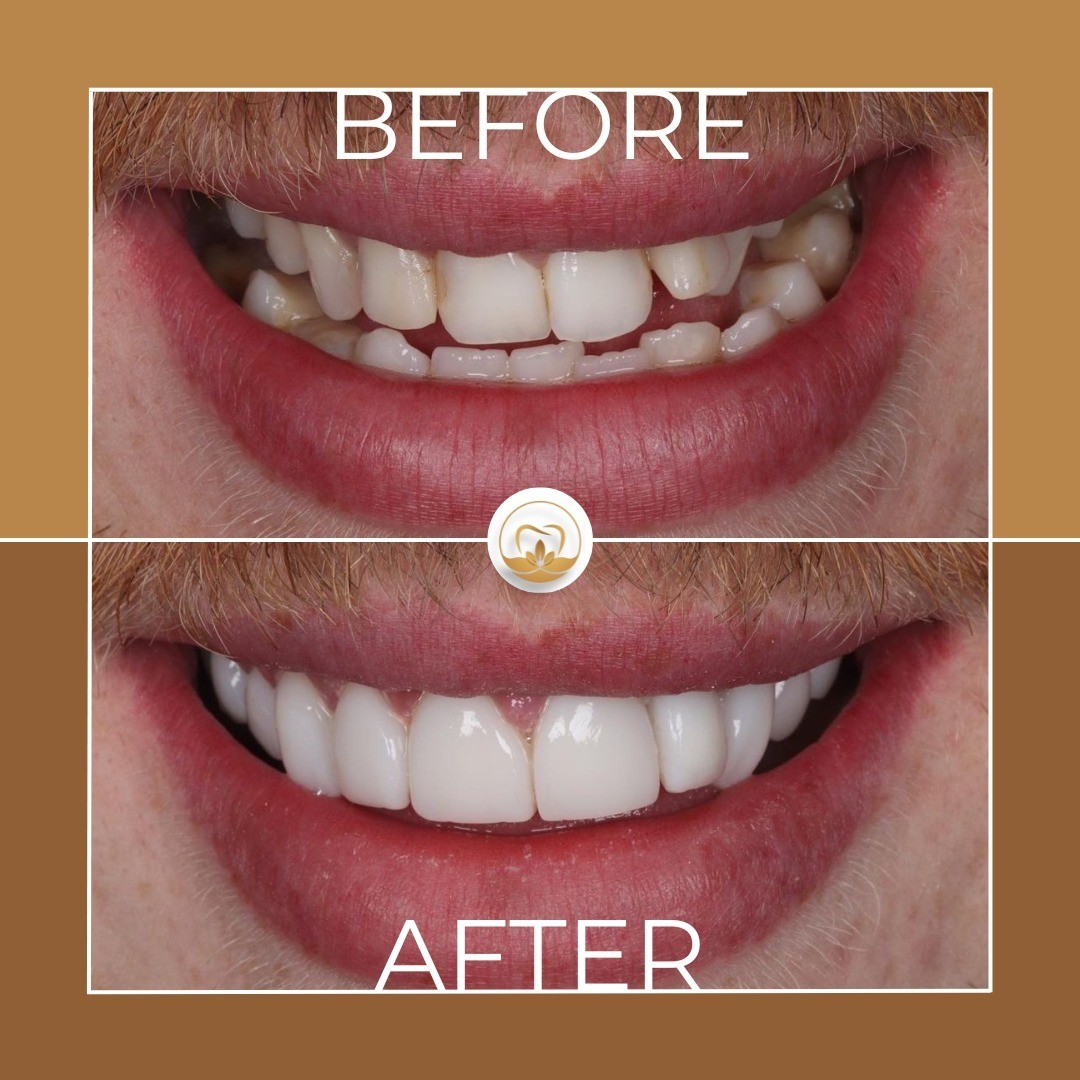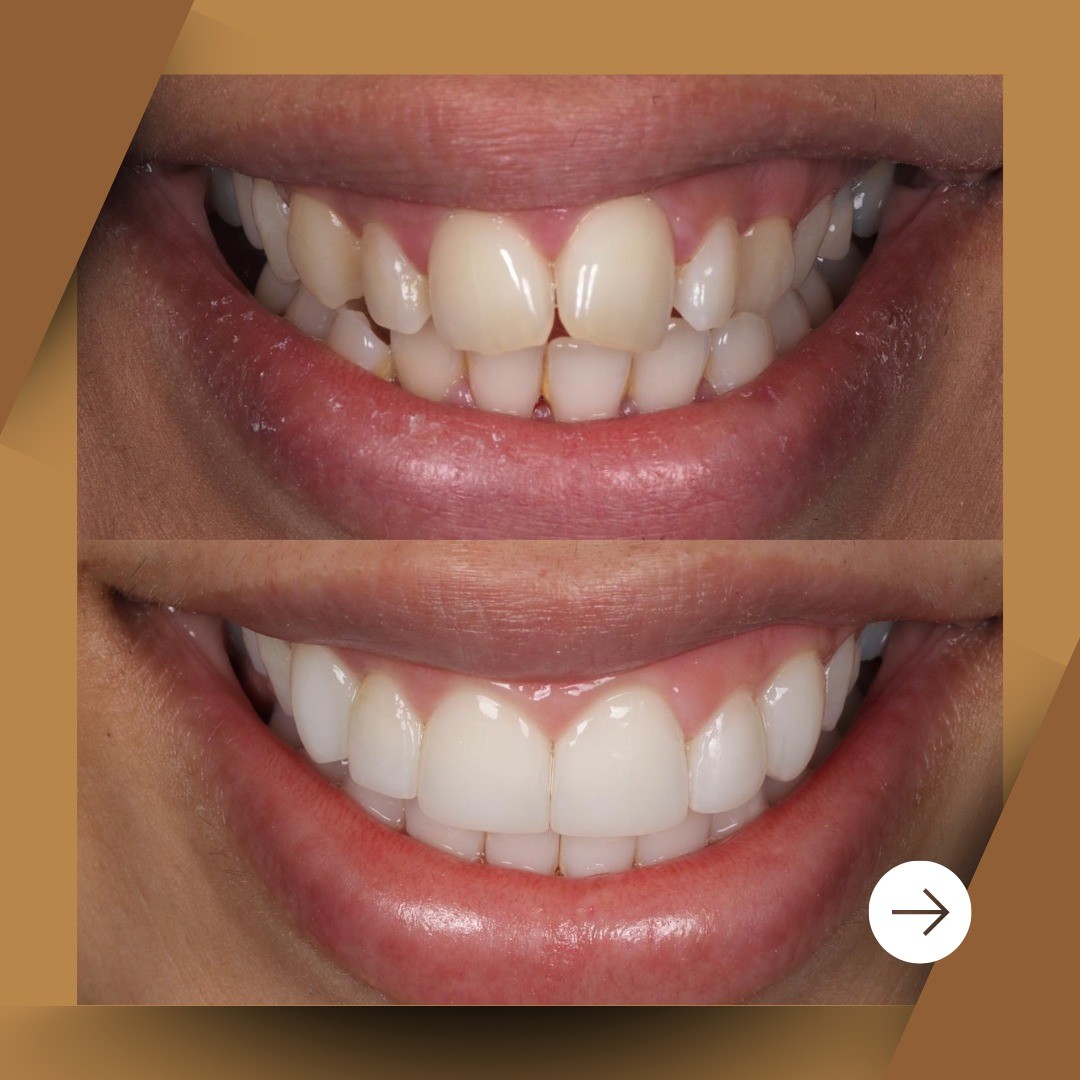Composite Bonding
Composite bonding is a quick, easy and painless way to fix cosmetic issues with your teeth. It's a great way to get a better smile without the need for any drilling or injections.
4.9/5 Stars on Google Reviews
We're open 9am-5pm every day.
Read more
The Single Most Affordable Tooth-Contouring Treatment
It'll shape your teeth non-invasively, unlike with veneers
Composite bonding is a technique where a tooth-colored resin is applied to your teeth and shaped to give you a better smile.
It's a very versatile treatment that can be used to fix a wide range of cosmetic issues, such as:
Chipped teeth
Gaps between teeth
Discolored teeth
Misshapen teeth
The process is simple, and usually takes only one visit to complete.
First, your dentist will choose a color of composite resin that matches your teeth. Then, they'll apply it to your teeth and shape it to give you the look you want.
Once your dentist is happy with the shape, they'll use a special light to harden the resin. After that, they'll polish it to give it a natural shine.
And that's it. You're done.
Composite bonding is a great way to improve your smile without having to go through the hassle of getting veneers. It's also a lot cheaper, so it's perfect if you're on a budget.
If you're looking to get composite bonding, then you'll be happy to know that it's a completely painless procedure. There's no need for any injections or drilling. You can just sit back and relax while your dentist works their magic.
The only thing you'll have to do is avoid eating or drinking anything that could stain your teeth for the first 48 hours after the procedure. That's because the resin is still slightly porous during that time, and it can pick up stains if you're not careful.
Other than that, you're free to go about your day as normal. The resin is incredibly strong, and it's not going to be damaged by anything you eat or drink.
You'll have brush and floss your teeth as normal though. That's because the resin is just as susceptible to plaque and tartar buildup as your natural teeth are.
How Long Does Composite Bonding Last?
Composite bonding can last for up to 10 years if you look after your teeth and avoid bad habits like biting your nails or chewing on pens.
The resin used in composite bonding is very strong, but it's not as strong as your natural teeth, so you'll need to be a little careful.
It's worth noting that the resin used in composite bonding is actually stronger than the resin used in white fillings, so if you've had a filling before and it's lasted a long time, then you can expect your composite bonding to last a long time too.
How Much Does Composite Bonding Cost?
Composite bonding is one of the most cost-effective ways to get a better smile.
The cost of composite bonding can vary depending on how much work you need done, but we price it very competitively at £300 per tooth.
How Long Does Composite Bonding Take?
A look at our cozy dental & skin spa
Composite bonding is a very quick treatment that can be completed in a single visit.
The amount of time it takes depends on how much work you need done, but you can expect to be in the dentist's chair for around 30 minutes per tooth.
Does Composite Bonding Hurt?
Composite bonding is a completely painless treatment.
There's no drilling involved, and no injections either.
The only thing you'll feel is the dentist applying the resin to your teeth, but that's not painful at all.
Can I Get Composite Bonding If I Have Sensitive Teeth?
Yes, you can.
Composite bonding is a completely painless treatment, and it doesn't cause any sensitivity either.
If you have sensitive teeth, then you'll be glad to know that composite bonding can actually help to reduce sensitivity.
The resin used in composite bonding acts as a barrier to protect your teeth from hot and cold food and drinks, so you'll find that your teeth are less sensitive after you've had the treatment.
Other Frequently Asked Questions
Can I Get Composite Bonding If I Have Gum Disease?
If you have gum disease, then you'll need to get that treated before you can have composite bonding.
The reason for this is that gum disease can cause your gums to recede, and if your gums recede after you've had composite bonding, then the edges of the resin will be exposed.
This will make your teeth look unnatural, and you'll need to get the composite bonding redone.
Can I Get Composite Bonding If I Have a Tooth Infection?
If you have a tooth infection, then you'll need to get that treated before you can have composite bonding.
The reason for this is that the infection can spread to the resin, and if that happens, then the resin will need to be removed.
Can I Get Composite Bonding If I Have a Tooth Abscess?
If you have a tooth abscess, then you'll need to get that treated before you can have composite bonding.
The reason for this is that the abscess can spread to the resin, and if that happens, then the resin will need to be removed.
Once the abscess has been treated, you can have composite bonding
















